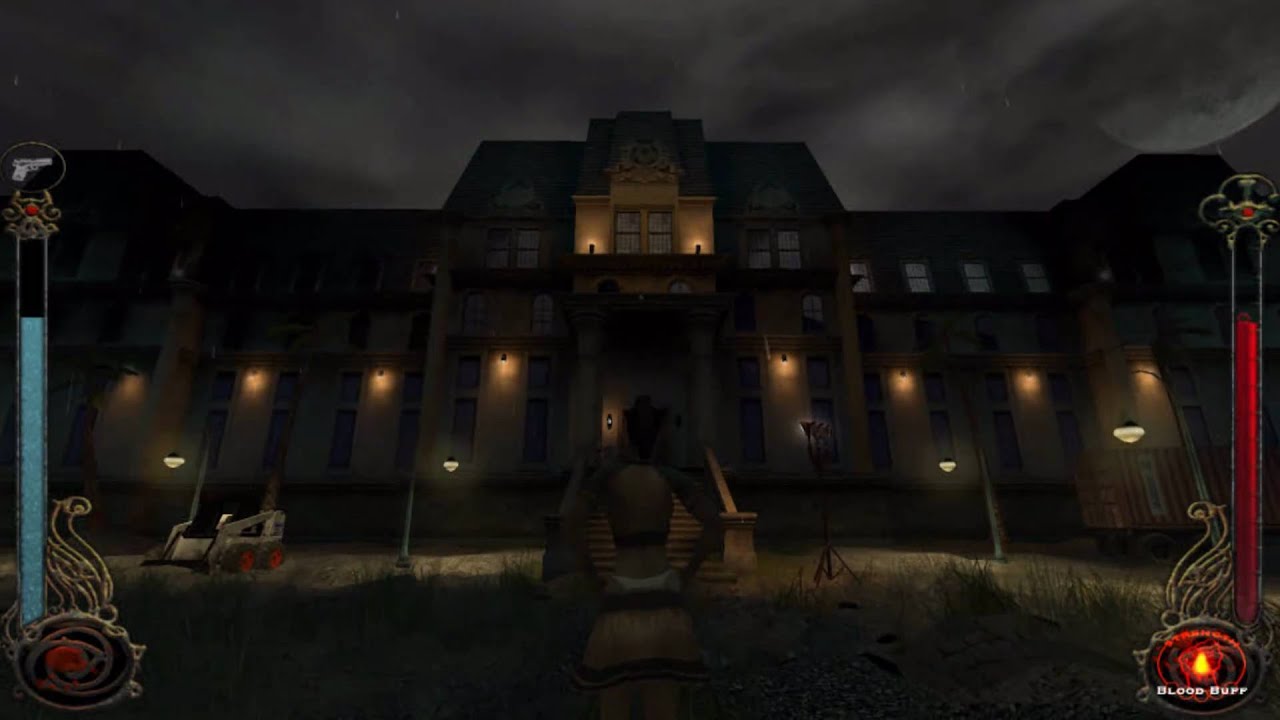Looking up “the scariest levels in games,” or “the scariest levels in non-horror games” produces a lot of familiar names: Bioshock, Half-Life, Ocarina of Time, and, strangely, a level from one cult classic with a name that doesn’t exactly roll off the tongue.
This is the story of Vampire the Masquerade: Bloodlines’ Ocean House Hotel.
VtM:B is a strange game to be certain. It is unfinished, janky, and needs an unofficial patch to even run smoothly. The core of VtM:B, however, is its clever writing and atmosphere- how the game effortlessly paints the picture of a seedy, dark community of vampires and other nightmarish creatures, so bored with immortality that they feel there is no choice but to do meaningless battle to posture with one another. It is a quirky, quippy game that still embodies a mounting sense of dread as undead Los Angeles descends into chaos over an ancient artifact every faction fights to possess.
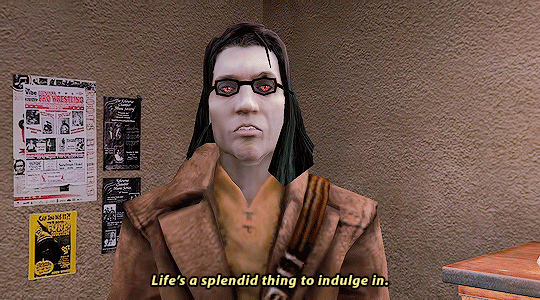
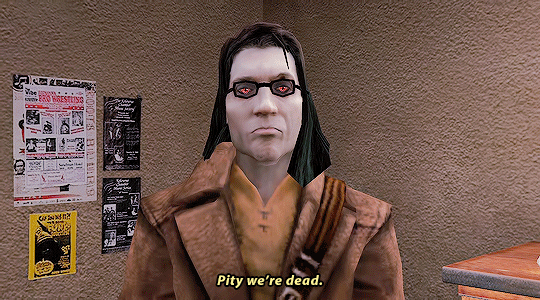
Early on in the game, the player is tasked by the owner of a hotel with quieting some ghosts on the property. It is then, in only the fifth quest of the game, that a player still learning the ropes is dropped into VtM:B’s most infamous level.
A hotel conjures up the uncanny in much the same way a house does- it is a safe place, one of rest, and a mundane one at that. All of the objects that frighten the player share this banality- a lawnmower, kitchen supplies, a child’s tricycle. Perhaps one of the scariest elements of the Ocean House Hotel is that none of these objects truly are scary on their own- but placed here, in this unfamiliar setting, sinisterly repurposed, they take on new and uncomfortable meaning.
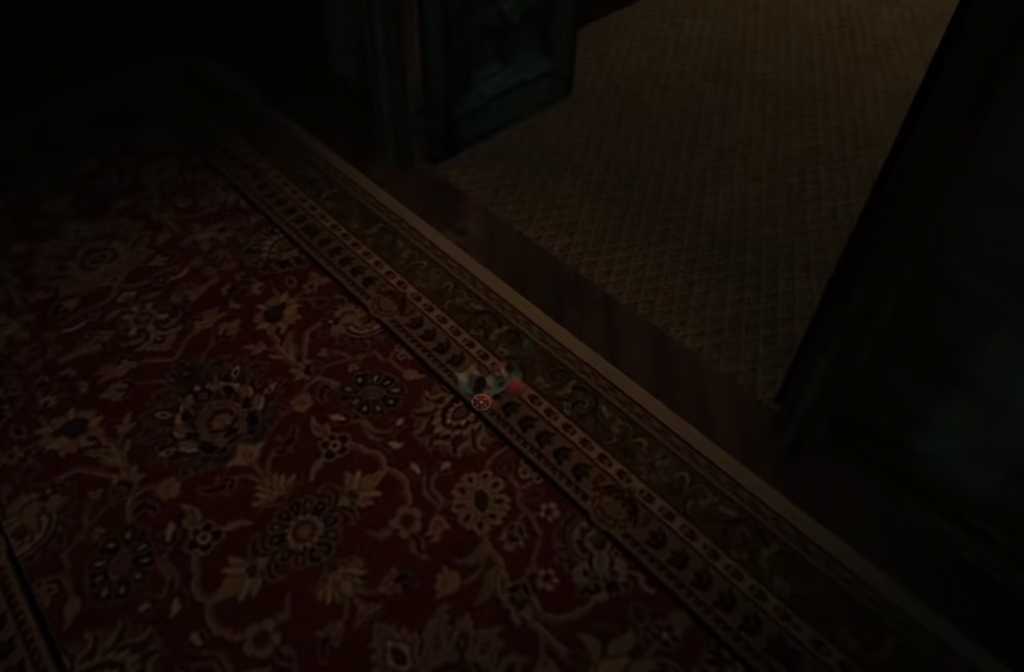
This idea of the unheimlich is key to how the Ocean House Hotel functions. It is different to any other level in the game. The Ocean House Hotel is one of the few places in VtM:B where there are absolutely no characters around. This contributes to the feeling of being unsafe mechanically, as the vampire player depends on humans nearby for feeding in order to maintain health and power levels. The Ocean House Hotel is also the first place where there is no background music in the game- the groovy tunes in the background of Santa Monica have been turned off, in favor of silence broken only by dissonant chords.
The Ocean House Hotel is also mechanically undemanding- it’s very difficult to die in this section (though I almost managed it). There are no stealth sections, as is encouraged in many other levels. There is no combat. The player cannot attack the forces haunting them even if they try. There are no dialogue choices to be made. All the player can do is move forwards and investigate, in a manner eerily similar to horror games we have played in class, like Anatomy or Until Dawn.
This lack of agency makes the player feel trapped- but more than that, makes the player feel unsettled. In a game like Anatomy or Gone Home, mechanical choices haven’t been stripped from the player- they were simply never available in the first place. Bloodlines makes a different choice, however. It tells the player that RPG mechanics like character stats and skills, action mechanics like weapons and combat awareness no longer matter. This is a key reason horror in non-horror games can be so effective- in most games, you can practice bosses, or enemies, or stock up on weapons or items or upgrades. There is no way to prepare for the Ocean House Hotel.
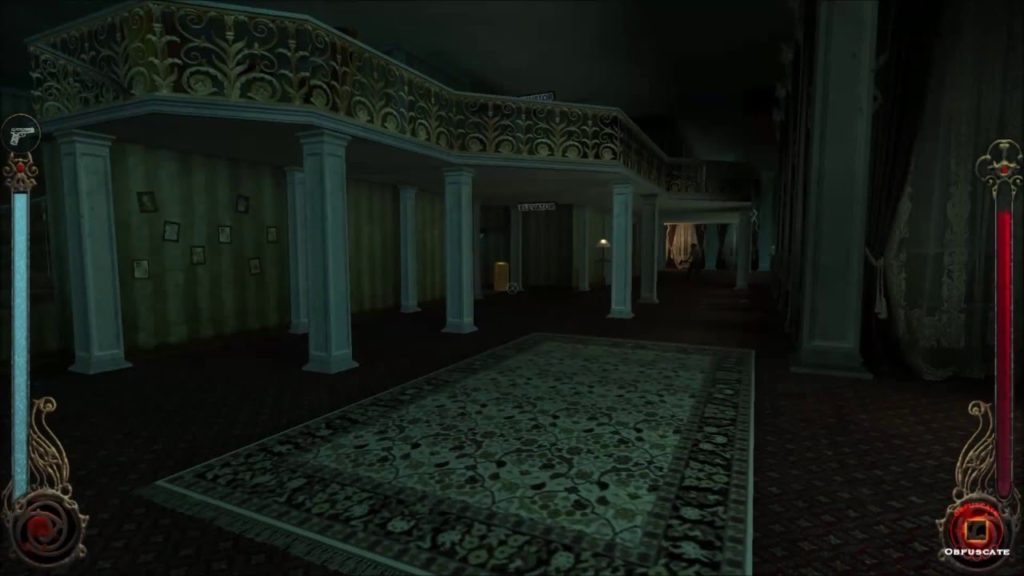
What makes the Ocean House Hotel truly fascinating is how it recontextualizes horror game tropes in the RPG setting. The powerlessness in the Ocean House Hotel is relative- the player knows how powerful they were before they were thrust into this helpless situation, making the loss all the more palpable. The quiet and loneliness is all the more striking at the heart of an irreverent, dingy world. The unheimlich works all the more because the player has only just experienced the heimlich.
Players of VtM:B have often contextualized the Ocean House Hotel in a similar way while discussing what precisely makes it scary. The player is a vampire, after all: a dark, undead creature. Judging by the rules of horror, a vampire is already uncanny- balancing between life and death, feeding upon blood and gore to survive at all. Ordinary humans and other vampires are terrified of you. The Ocean House Hotel, clad in its misappropriated normalcy and strict departure from the game’s norms, then poses a chilling question.
What scares the creature that goes bump in the night?
